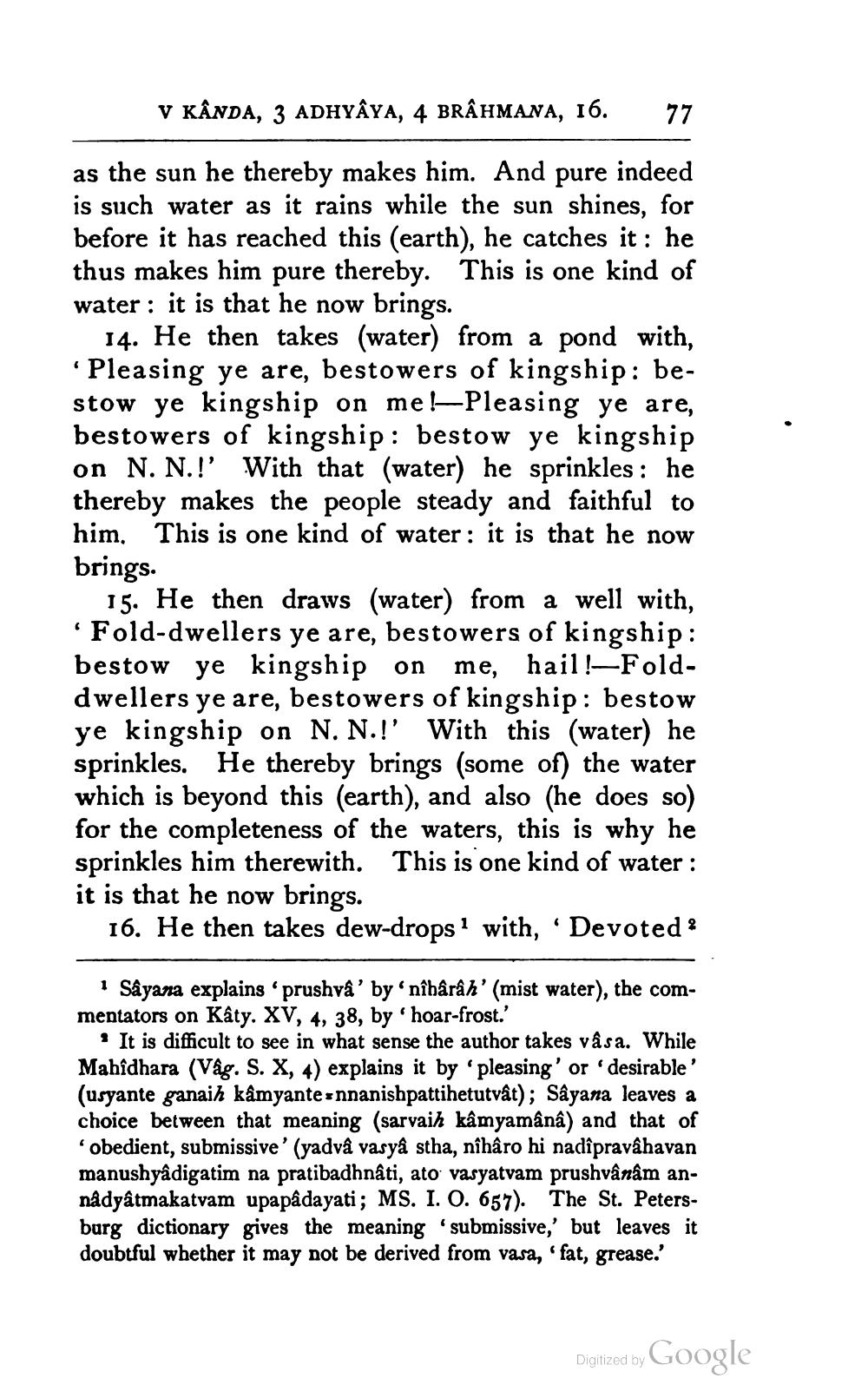________________
V KÂNDA, 3 ADHYAYA, 4 BRÂHMANA, 16.
77
as the sun he thereby makes him. And pure indeed is such water as it rains while the sun shines, for before it has reached this (earth), he catches it : he thus makes him pure thereby. This is one kind of water : it is that he now brings.
14. He then takes (water) from a pond with, Pleasing ye are, bestowers of kingship: bestow ye kingship on me! Pleasing ye are, bestowers of kingship: bestow ye kingship on N. N.!' With that (water) he sprinkles: he thereby makes the people steady and faithful to him. This is one kind of water: it is that he now brings.
15. He then draws (water) from a well with, * Fold-dwellers ye are, bestowers of kingship: bestow ye kingship on me, hail !-Folddwellers ye are, bestowers of kingship: bestow ye kingship on N. N.!' With this (water) he sprinkles. He thereby brings (some of) the water which is beyond this (earth), and also he does so) for the completeness of the waters, this is why he sprinkles him therewith. This is one kind of water : it is that he now brings.
16. He then takes dew-drops 1 with, “Devoted ?
1 Sâyana explains 'prushva' by nîhârâh' (mist water), the commentators on Kâty. XV, 4, 38, by 'hoar-frost.'
It is difficult to see in what sense the author takes vâsa. While Mahîdhara (Vág. S. X, 4) explains it by 'pleasing' or 'desirable' (usyante ganaih kâmyantes nnanishpattihetutvât); Sâyana leaves a choice between that meaning (sarvaih kâmyamânâ) and that of
obedient, submissive' (yadvâ vasyâ stha, nîhâro hi nadîpraváhavan manushyâdigatim na pratibadhnâti, ato vasyatvam prushvânâm annådyâtmakatvam upapâdayati; MS. I. O. 657). The St. Petersburg dictionary gives the meaning submissive,' but leaves it doubtful whether it may not be derived from vasa, 'fat, grease.'
Digitized by Google




